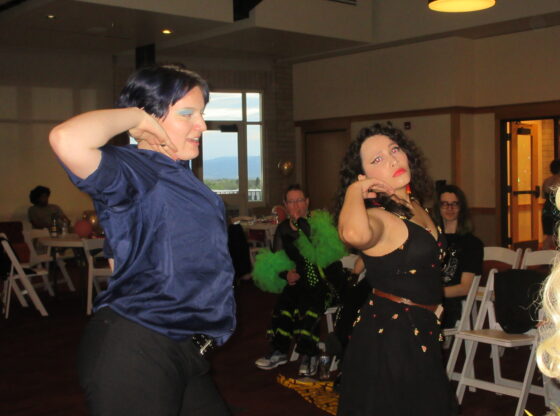*This review contains some spoilers.
Overall rating: 2.5/5 stars
When the beautiful cover for Emily A. Duncan’s new book “Ruthless Gods,” the sequel to her debut “Wicked Saints,” was revealed on Instagram in February, I was captivated. I wanted to read the first book immediately so I’d be ready for the gorgeous-looking sequel. I was hooked when one of my favorite young adult (YA) authors Stephanie Garber, known for her bestselling “Caraval” trilogy, reviewed “Wicked Saints.” She wrote, “This book destroyed me and I adored it.”
My expectations were sorely unfulfilled.
“Wicked Saints,” an instant New York Times bestseller upon its April 2019 release, is a YA fantasy that dabbles in religion, romance and monsters. It is the first book of a planned trilogy. The story follows 17-year-old Nadezhda “Nadya” Lapteva as she attempts to end a centuries-old holy war between the Tranavians and Kalyazins. Her unique ability to communicate with the gods, along with her rag-tag team of outcasts, makes her dangerous and feared. Throughout her journey, she falls for the king of monsters himself, the Tranavian-born Malachiasz. Readers also follow the High Prince of Tranavia as he struggles to fight a war he wants no part in.
I was hoping to love this novel but encountered several issues throughout this blood-splattered fairy tale. Duncan’s twining of religion and politics raises some interesting questions in the first few chapters, but it is not enough to keep the mundane characters afloat through their melodramatic travels. Duncan also takes a chance on the enemies-to-lovers trope with little success. Perhaps the most problematic aspect was Nadya’s almost instantaneous fall for Malachiasz. Their attraction to one another seems to stem from it being forbidden, but there are very few interactions that actually show believable, complex and interesting chemistry between them.
The writing itself is average. There exists an unspoken understanding with YA novels – they don’t quite reach the experimental standards of literary or adult fiction, particularly adult high fantasy where world-building is far more cohesive, characters have more depth and themes have more layers. However, there is still amazingly strong YA writing out there that seamlessly interweaves authentic voices with breathtaking narrative.
“Wicked Saints” was not one of them.
For all of the gothic, drenching darkness that was supposed to seep from the pages, the few violent encounters were over quickly in flashes of redundant descriptions. The deaths were meaningless and did little to advance the narrative or change the characters. I found there to be little distinction in this novel despite “Wicked Saints” being hailed as a sinister deviation from the usual YA books for its bloodshed, gore and sacrifices.
The sequel “Ruthless Gods” released April 7, and it promises to open “the door to a world of fallen gods and eldritch horrors” and be “gruesome, grotesque, and so, so glorious.” I was optimistic about this world of divine blood magic and heartbreaking villains, but after the confusion of “Wicked Saints,” I’m less certain about the journey ahead for the girl who can’t make up her mind and the prince who sort of just disappears at the end. If you’re looking to immerse yourself in a richly crafted fantasy world during these uncertain times, I’d recommend looking somewhere other than Duncan’s “Wicked Saints,” which falls short of creating empathetic characters in a world that enchants me.











